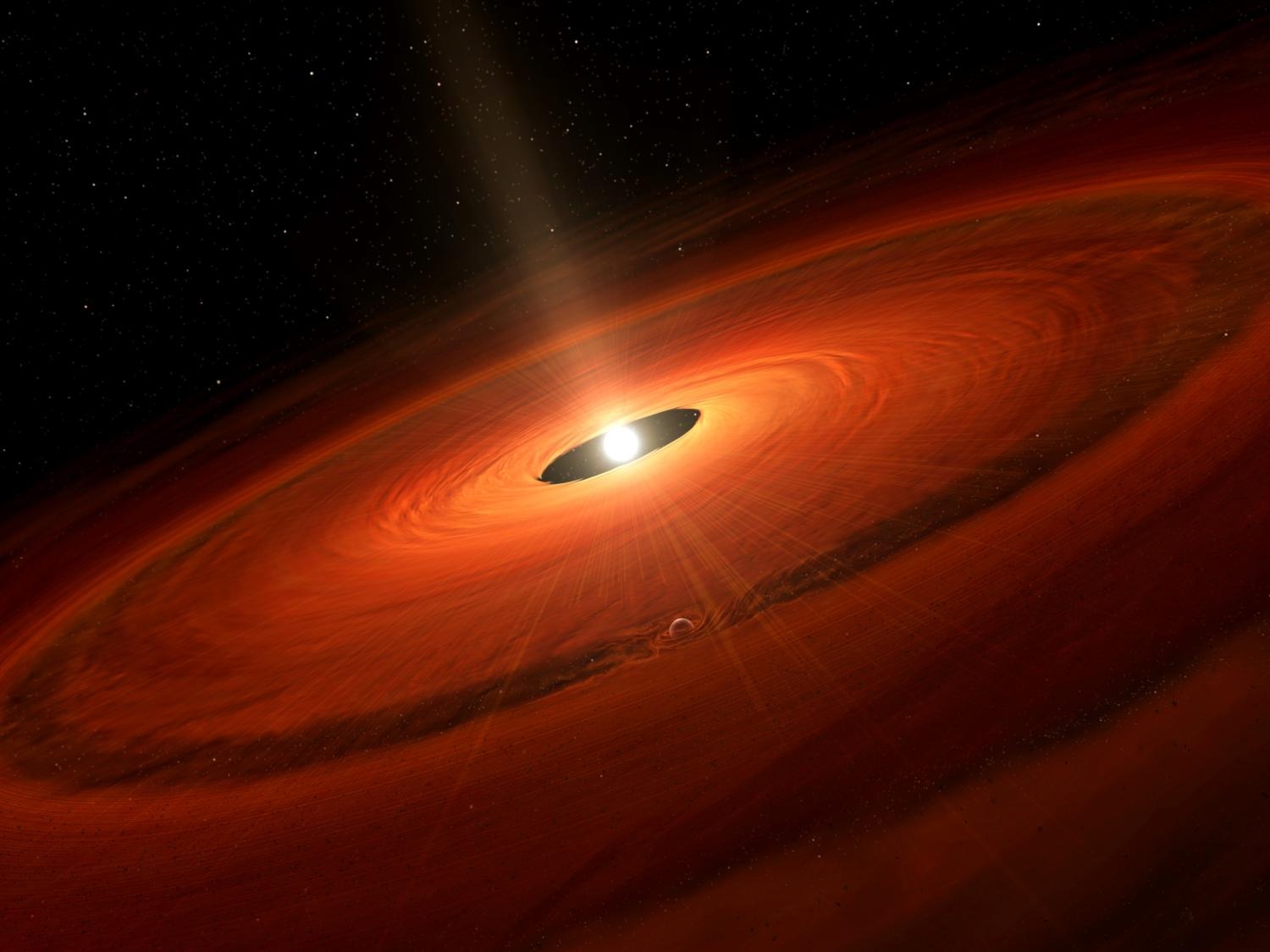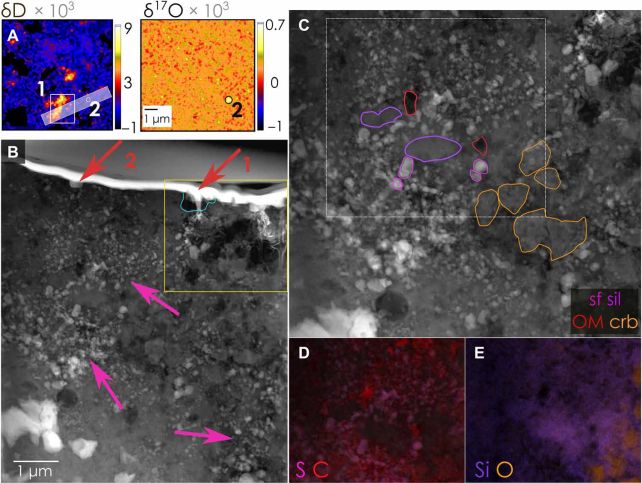In the 4.5 billion years since the Solar System formed from a disk-shaped cloud of dust and gas, there have been significant changes. The matter of the protoplanetary disk underwent major transformations: it formed planets, was exposed to solar radiation, plasma, and interactions with other atoms. As a result, the major components of an early dust disk are difficult to recognize, but still possible.

An international team of scientists has discovered traces of the original material in an ancient rock found on Earth in 2018. This material is considered to have originated from the protoplanetary disk when the Solar System was in its embryonic state. This discovery may shed light on the history of the Solar System and the basic building blocks that formed everything around us.
The Sun was born in a cloud of dust. The denser part of the cloud collapsed under the action of gravity, forming a disk that nourished the growing star. The remnants of this disk formed the planets, moons, asteroids, comets, and icy pieces of rock that form the Oort Cloud. This cloud is thought to have remained relatively unchanged since the birth of the Solar System, making it an important object to study for source material.
However, this material is difficult to study. Even when cometary debris enters Earth’s atmosphere, it often burns up as it falls. But some cometary fragments can persist inside meteorites and reach the Earth’s surface intact.

Researchers led by Elishevah van Kooten from the University of Copenhagen studied the meteorite NWA 14250 using electron microscope and spectroscopic analysis. They found that some of the minerals inside the meteorite were probably of cometary origin. This discovery suggests that meteorites like NWA 14250 can help study the composition of the early Solar System.
In addition, the detected debris resembles the ones found in other meteorites from the outer Solar System near Neptune, as well as samples from the asteroid Ryugu. This indicates that the original material was relatively common and the composition of the protoplanetary disk was homogeneous during the formation of the Solar System.
This discovery reveals the accretion history of the solar protoplanetary disk.
According to sciencealert.com


